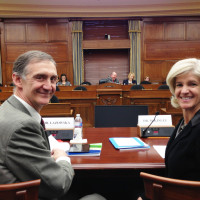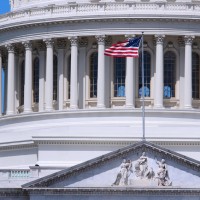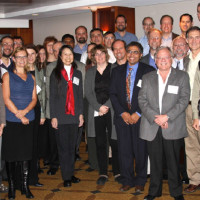
IT Research Hearing Focuses on Security, Education
On February 14, the House Science, Space, and Technology Committee’s Subcommittee on Research held a hearing on Applications for Information Technology Research and Development. CCC Chair and former CRA Board Chair Ed Lazowska, CRA-W Chair and current CRA Board Member Kathryn McKinley, representing Microsoft, and Kelly Gaither of the University of Texas at Austin testified on behalf of the computing community and articulated the importance of federal funding for computing research.









